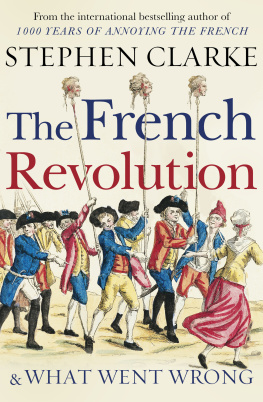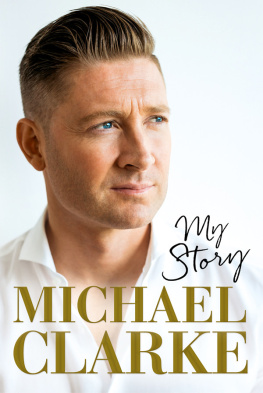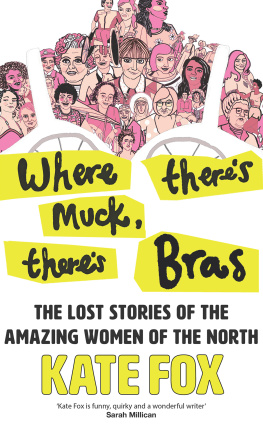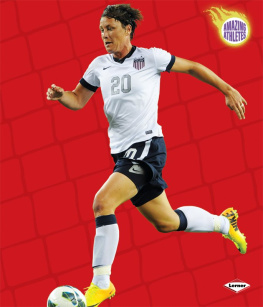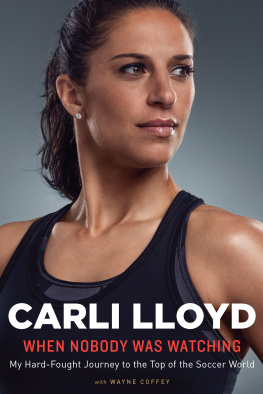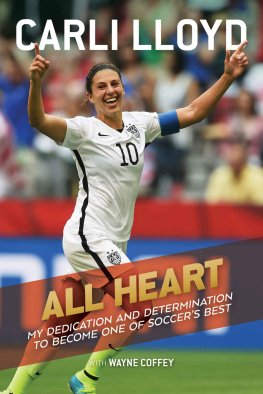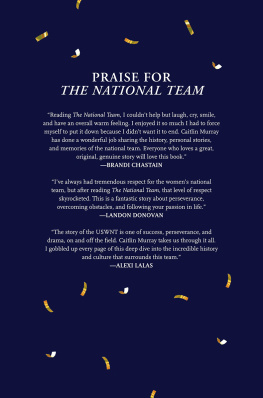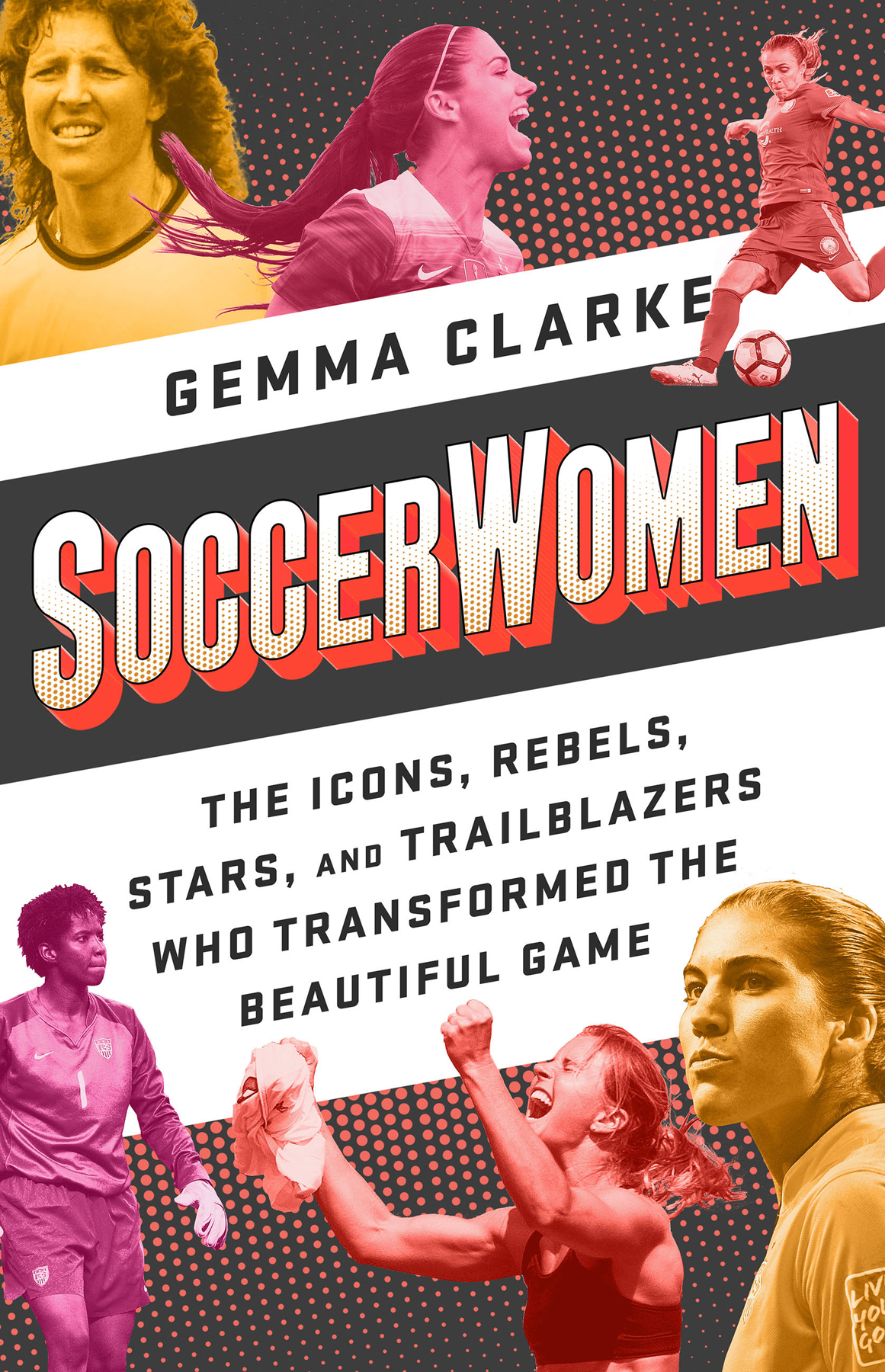Copyright 2019 by Gemma Clarke
Cover design by Pete Garceau
Cover photographs of players, clockwise from top left: Michelle Akers Zumapress.com/Newscom; Alex Morgan Michael Wade/Icon Sportswire/Newscom; Marta Vieira Da Silva Andrew Bershaw/Icon Sportswire/Newscom; Hope Solo Alamy Stock Photo; Brandi Chastain Reuters/Newscom; Briana Scurry Jonathan Larsen/Diadem Images/Alamy Stock Photo
Cover copyright 2019 Hachette Book Group, Inc.
Hachette Book Group supports the right to free expression and the value of copyright. The purpose of copyright is to encourage writers and artists to produce the creative works that enrich our culture.
The scanning, uploading, and distribution of this book without permission is a theft of the authors intellectual property. If you would like permission to use material from the book (other than for review purposes), please contact permissions@hbgusa.com. Thank you for your support of the authors rights.
Bold Type Books
116 East 16th Street, 8th Floor New York, NY 10003
www.boldtypebooks.org
@BoldTypeBooks
First Edition: April 2019
Published by Bold Type Books, an imprint of Perseus Books, LLC, a subsidiary of Hachette Book Group, Inc. Bold Type Books is a co-publishing venture of the Type Media Center and Perseus Books.
The Hachette Speakers Bureau provides a wide range of authors for speaking events. To find out more, go to www.hachettespeakersbureau.com or call (866) 376-6591.
The publisher is not responsible for websites (or their content) that are not owned by the publisher.
Library of Congress Cataloging-in-Publication Data
Names: Clarke, Gemma, author.
Title: Soccerwomen : the icons, rebels, stars, and trailblazers who transformed the beautiful game / Gemma Clarke.
Other titles: Soccer women
Description: First edition. | New York : Nation Books, [2019] | Includes bibliographical references.
Identifiers: LCCN 2018050633 (print) | LCCN 2018055122 (ebook) | ISBN 9781568589206 (ebook) | ISBN 9781568589213 (trade pbk.)
Subjects: LCSH: Women soccer playersBiography. | Soccer playersBiography. | Soccer for womenHistory.
Classification: LCC GV942.7.A1 (ebook) | LCC GV942.7.A1 C53 2019 (print) | DDC 796.3340922 [B]dc23
LC record available at https://lccn.loc.gov/2018050633
ISBNs: 978-1-56858-921-3 (trade paperback); 978-1-56858-920-6 (ebook)
E3-20190322-JV-NF-ORI
PRAISE FOR
SOCCERWOMEN
By tracing womens soccer from its earliest days to the young women breaking out onto the pitch right now through short biographies of some of the best women to play the sport, Clarke provides a comprehensive retelling of soccer through the words and experiences of the women themselves. This is a book of heroes, but also a book about athletes, who just want to play the game they love. And it is, of course, about triumph in the face of discrimination and diversity. It doesnt take long into the book to start to question why anyone wouldnt choose to support these athletes, forget actively working against them to keep them off the pitch. And not long after that, youll find yourself cheering these women on, fist-pumping their achievements, and standing in awe of what they have done.
Jessica Luther, award-winning journalist, cohost of the feminist sports podcast Burn It All Down, and author of Unsportsmanlike Conduct
An excellent, thoughtful read about a topic that has had scandalously little coverage. Womens soccer needs its own heroes and legends. Gemma Clarke is helping to create them. She put her heart into this book, and it shows.
Simon Kuper, Financial Times columnist and coauthor of Soccernomics
Where we are now with womens soccer is because of all those whove come before. And my goodness what stories they can tell. In this engrossing read, Gemma Clarke not only shares the battle it has taken to get women onto a football pitch, but then goes on to introduce us to players the world over who we must thank for putting the 2019 Soccerwomen in a better place. These are stories that have at the very heart of them what it really means when we use such phrases as fighting against all odds. If you want to see what that looks like, over and over again, in its many forms, youll find it in these quite brilliantly written pages.
Rebecca Lowe, NBC Sports anchor
Soccerwomen charts the remarkable route of the worlds most determined female footballers and coaches through fine storytelling and honest testimony. This book is rich with historical detail and personal anecdotes that bring to life the characters, their love of the game, and the way the trailblazers overcame challenges to influence the most popular sport on earth. Gemma Clarke writes with passion, precision, and context in this important work. It puts into action the sentiment of the final words: To anyone who has ever been told they cant do the thing they love: dont listen. Do it anyway.
Amy Lawrence, football writer for the Guardian and Observer
You could describe Gemma Clarkes Soccerwomen as a whos who of womens soccer. But it is so much more than that. Her charting the birth of womens soccer in the munitions factories of England to the nuances of its development in the US and the fights for equal rights and pay, better conditions, and just the right to play, is peppered with the rich stories of some of the games most well-known namesand those less well known but deserving of a place in the spotlight. Rich storytelling brings to life players sporting achievements and their off-field battles, including homelessness, alcohol abuse, injury, concussion, parenthood, the effects of natural disasters, and war and sexuality. An inspirational read that will tell any young or aspiring player going through a difficult time that they can make it and they are not alone.
Suzanne Wrack, womens soccer correspondent for the Guardian
To Stark, Griffin, and Devon.
My heart says, get up, get back in the game, this isnt just about you.
Theresa Rebeck
If the lady footballer dies, she will die hard.
The Sporting Man, April 4, 1895
I didnt think I could write this book.
Sure, it was my idea. It was the book I wanted to read, so it was certainly the book I wanted to write. But when faced with the prospect of actually writing it, my confidence faltered.
I thought about how when I started out as a sports writer, I didnt want to write about womens soccer at all. And although Id been madly kicking a ball around in my backyard since I could walk, I didnt want to play womens soccer either. There was no setup for it in England, no professional league to aspire to join. I was the only girl out of hundreds of boys at the soccer schools I attended. So I grew up thinking there was nothing better than to be considered one of the boys, to be allowed into the realm of male culture and sports and, later, bestowed with the privilege of writing about the mens professional game.
When the first newspaper I wrote for in England began sending me to report on womens soccersimply by virtue of being femaleI was clueless and reluctant. It meant fewer column inches, less pay, less glory. The beauty of soccer has always been in its stories, those age-old rivalries and intriguing characters, and the narratives of womens soccer were new to me. To make matters more complicated, I was entirely schooled in the automatic terminology of the mens game. Was it okay to say things like having a man sent off or keeping a man on the line? During a phone interview, I once asked a player if the support of the home crowd would be like having a twelfthlong, uncomfortable pause


